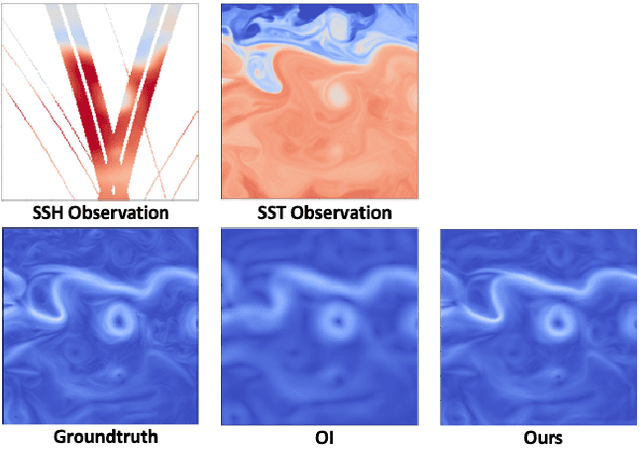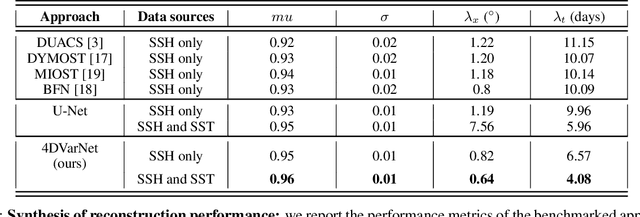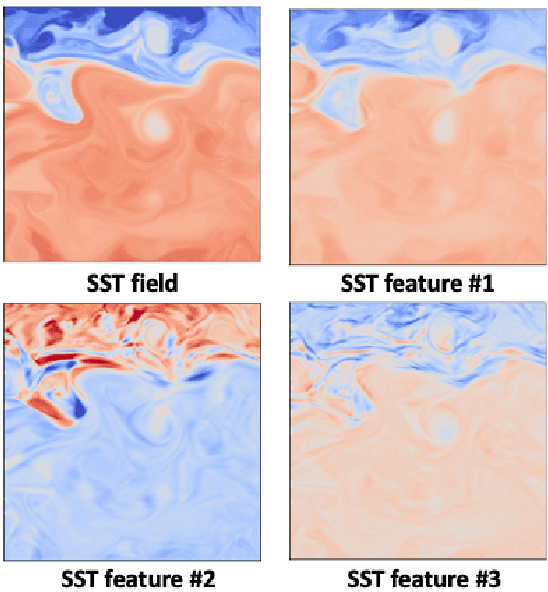Multimodal learning-based inversion models for the space-time reconstruction of satellite-derived geophysical fields
Paper and Code
Mar 20, 2022


For numerous earth observation applications, one may benefit from various satellite sensors to address the reconstruction of some process or information of interest. A variety of satellite sensors deliver observation data with different sampling patterns due satellite orbits and/or their sensitivity to atmospheric conditions (e.g., clour cover, heavy rains,...). Beyond the ability to account for irregularly-sampled observations, the definition of model-driven inversion methods is often limited to specific case-studies where one can explicitly derive a physical model to relate the different observation sources. Here, we investigate how end-to-end learning schemes provide new means to address multimodal inversion problems. The proposed scheme combines a variational formulation with trainable observation operators, {\em a priori} terms and solvers. Through an application to space oceanography, we show how this scheme can successfully extract relevant information from satellite-derived sea surface temperature images and enhance the reconstruction of sea surface currents issued from satellite altimetry data.
 Add to Chrome
Add to Chrome Add to Firefox
Add to Firefox Add to Edge
Add to Edge